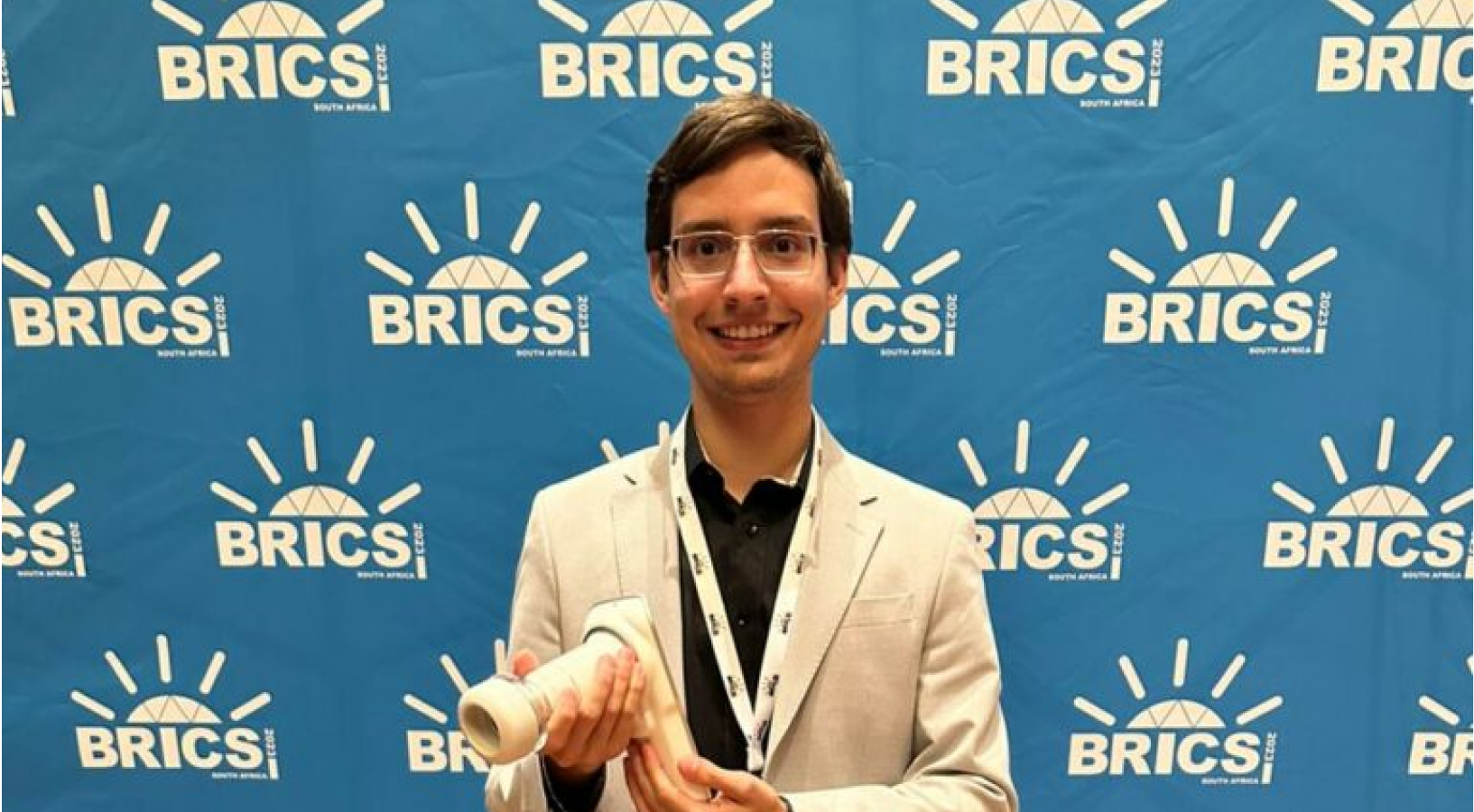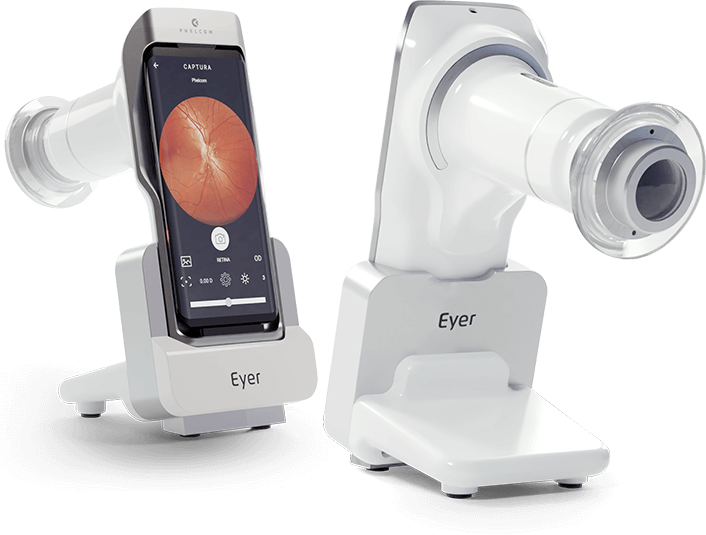The doctor Gustavo Rosa Gameiro, a PhD student in ophthalmology at Unifesp, was selected by the Brazilian Academy of Sciences (ABC) and the Ministry of Science, Technology and Innovation (MCTI) to participate in the 8th BRICS Young Scientists Forum. The event occurred from July 31th to August 8th in Gqeberha, South Africa.
BRICS is a group of five developing countries focused on mutual economic cooperation: Brazil, Russia, India, China and South Africa.
Gameiro was one of the six Brazilian scientists nominated to take part in the panel “The future of education, skills and skill sets”. The PhD student points out that education entered the BRICS agenda with great force this year. “In my presentation, we discussed applications of basic models and the use of the Eyer portable fundus camera with artificial intelligence for teaching ophthalmology based on the results of our workshops,” says the doctor, the youngest member of the Brazilian delegation at the event at 27 years old.
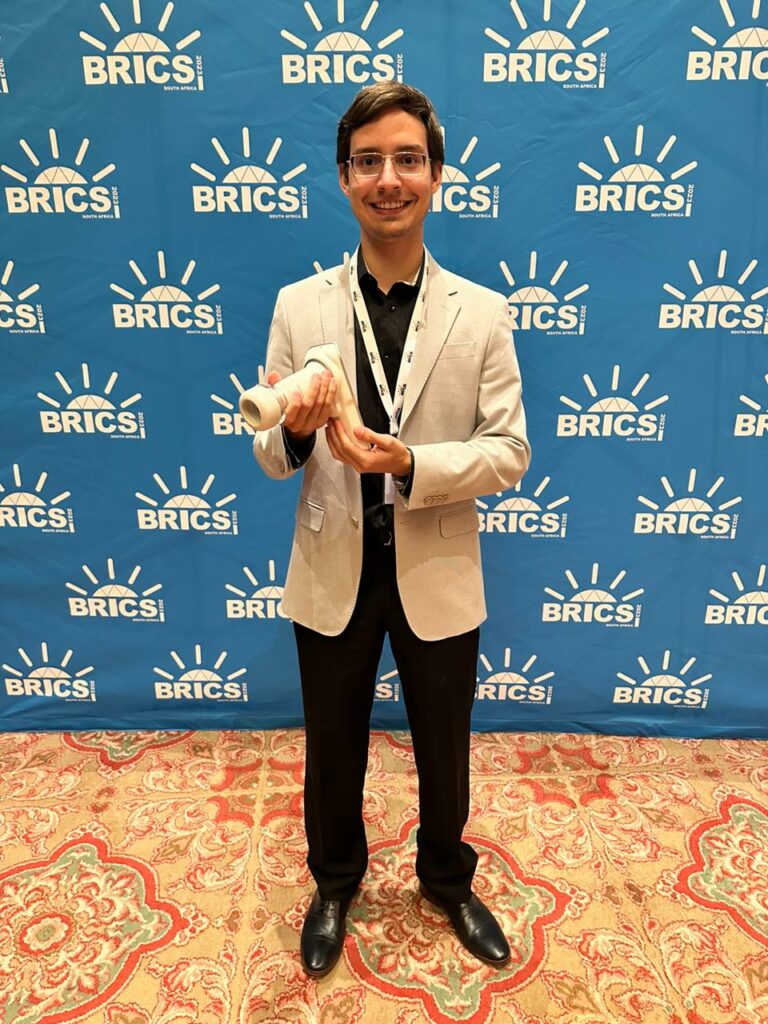
Gustavo Gameiro used the Eyer portable fundus camera in his project presented at the 8th BRICS Young Scientists Forum. Photo: personal archive.
Gameiro explains that the first approach to diseases such as glaucoma, Age-Related Macular Degeneration (AMD) and diabetic retinopathy in primary care is often carried out by the newly qualified clinical doctor.
“However, studies reveal that they have a huge deficit in the teaching of ophthalmology during their degree, compromising the correct approach and prognosis of these cases. This can lead to insecurity in referring or treating patients with ophthalmic complaints,” he explains.
Workshops
The workshops took place with undergraduate students from Unifesp and the Albert Einstein Israelite Institute for Education and Research and were supported by the ophthalmologists Thiago Gonçalves Martins and Paulo Schor, Gameiro’s PhD advisor. The Eyer portable fundus camera and the EyerMaps AI system were provided free of charge by Phelcom Technologies for the project.
“With the EyerMaps AI resource, which uses a heat map to highlight areas of the retina with possible alterations caused by different pathologies, we were able to teach and correct the student’s interpretation findings at the same time as captured by the fundus of the eye,” says the doctor.
“The clarity of the images is absurdly incredible. We did exams on our colleagues and we were able to see every detail of the retina, optic nerve and vessels. Transforming large, heavy devices like a fundus camera into portable ones makes the doctor’s life much easier, because we can go to the patients and achieve better results,” says Unifesp medical student Suellyn Alves, who took part in the workshop.
Gameiro goes further: “Perhaps we need to change the paradigm of only teaching students how to acquire images using ophthalmic equipment. We need to focus on how to interpret them and manage these exams, organizing them in the cloud, for example. and with the Eyer, you can easily teach interpretation and management” he says.
With the satisfactory results of the workshops, the doctor reveals his desire to expand the project and turn it into support material for teaching ophthalmology throughout Brazil.
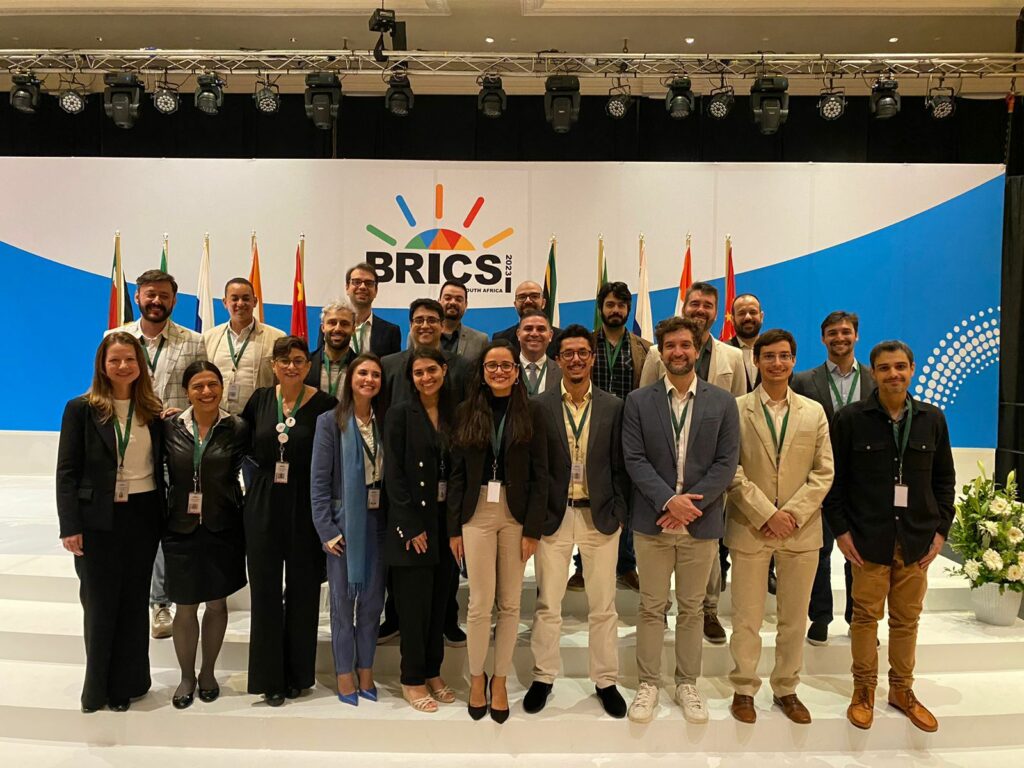
Brazilian delegation during the 8th BRICS Young Scientists Forum. Photo: personal archive.
“Eyes to the Future” contest
Gameiro is also working on a new project at the same time: evaluating the impact and follow-up of the projects presented in the “Eyes to the Future” contest, held by the Brazilian Association of Academic Ophthalmology Leagues (ABLAO), in partnership with Phelcom and with the support of the Brazilian Ophthalmology Council (CBO).
The competition seeks to teach students and encourage leagues to develop extension activities aimed at creating educational and/or assistance projects with the objective of reducing blindness due to posterior segment pathologies. To accomplish this.Phelcom provided 20 Eyer units with access to the EyerMaps feature and the EyerCloud cloud system.
The competition selected 10 projects and the top three will receive an Eyer. “It would be very interesting if we could permanently leave a portable fundus camera with each of the 10 leagues. We’re going to work on getting sponsorship to buy the seven remaining devices,” says the doctor.
“After the Academic Leagues were selected, we spoke to ABLAO’s president Luís Sabage and realized the need to evaluate and follow up on the projects submitted. Our future goal is to increase the number of ophthalmologic leagues, medical students and patients reached by the outreach projects developed,” he explains.
Furthermore, based on the results obtained in the “Eyes to the Future” contest and the points for improvement found, Gameiro intends to structure an online ophthalmology course for medical students and general practitioners, covering basic eye examination techniques, the use of artificial intelligence platforms and the interpretation of retinography images.
The doctor points out that traditional equipment for evaluating the fundus of the eye, such as fundoscopy performed with an indirect ophthalmoscope and condenser lens, is relatively difficult to handle, requires lengthy training, has a learning curve and depends on the examiner for evaluation. Besides, most of the time it doesn’t allow photographic recording of the retina for later discussion and review.
Alternatively, there is the conventional fundus camera. However, it is expensive to purchase. “Capturing images of the retina is extremely important for more accurate assessment and for monitoring the disease and treatment. It also plays a fundamental role in the training of new professionals through the presentation and discussion of findings in a group, allowing students and doctors to compare their exams and review the results,” he says.
The Eyer portable fundus camera is an extremely advantageous option in several aspects:
- It makes it easy to capture high-quality images of the retina without much prior training;
- Lightweight and small (it fits in the palm of your hand);
- It does not require specialized labor;
- Relatively more affordable than a traditional fundus camera;
- It is non-mydriatic, shortening the examination time and avoiding possible adverse effects (visual discomfort, photophobia, keratitis and increased intraocular pressure);
- Through telemedicine, it sends the images to the cloud, enabling remote diagnosis.
For Gameiro, the Eyer can have a significant impact on medical education. “The device can be used by medical students as a practical learning opportunity, demonstrating clinical cases and monitoring the progression of eye diseases over time, as well as stimulating interactive discussions between students and teachers, encouraging research projects and cases and facilitating access to and recording of a wide variety of cases,” he points out.
The equipment also has on-board artificial intelligence, which can be a reliable and cost-effective option for screening retinal and optic nerve pathologies using algorithms built on extensive databases.
“These algorithm models are able to predict the risk of alteration and thus notify the examiner of the need for follow-up with a more qualified specialist. In this way, the use of AI, together with deep learning and telemedicine, can represent an effective long-term solution for screening and monitoring patients in primary health care,” he concludes.
About the Eyer
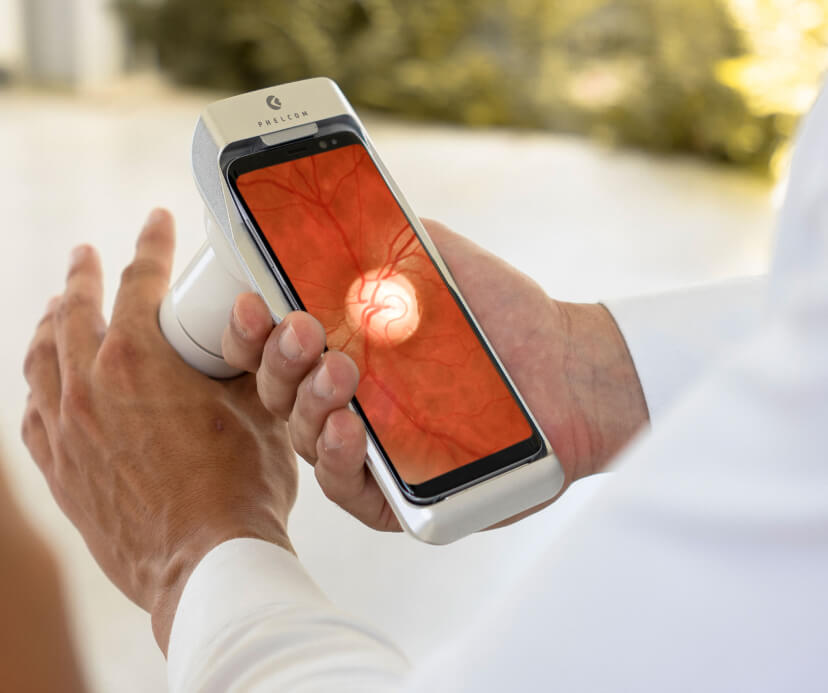
Eyer Portable Fundus Camera
The Eyer is a portable fundus camera that works in conjunction with a smartphone and performs high-quality retinal examinations in a few minutes without the need for pupil dilation.
The technology supports the diagnosis of more than 50 diseases, including glaucoma, cataracts, diabetic retinopathy, AMD, retinoblastoma, hypertensive retinopathy and ocular toxoplasmosis. Currently, more than 10 million tests have been carried out in Brazil, the United States, Chile and Colombia.
The technology’s portability and affordability democratize access to retinal examinations. It costs approximately six times less than a conventional tabletop fundus camera, which still needs to be integrated with a computer.
About Phelcom
Phelcom Technologies is a Brazilian medtech company based in São Carlos, in the interior area of São Paulo. The company’s story began in 2016, when three young researchers – a physicist, an electronics engineer and a computer engineer (physics, electronics, computing) – created a portable fundus camera integrated with a smartphone.
The idea for the first prototype was realized by Diego Lencione’s interest in visual health, as his brother has had a condition that has severely compromised his retina and vision since childhood.
In 2019, Phelcom launched its first product on the Brazilian market: the Eyer portable fundus camera. Today, the technology has reached more than two million people across Brazil and worldwide.
In four years, the company has participated in more than 100 social actions and was recently named one of the 10 most innovative companies in Brazil by Forbes.


